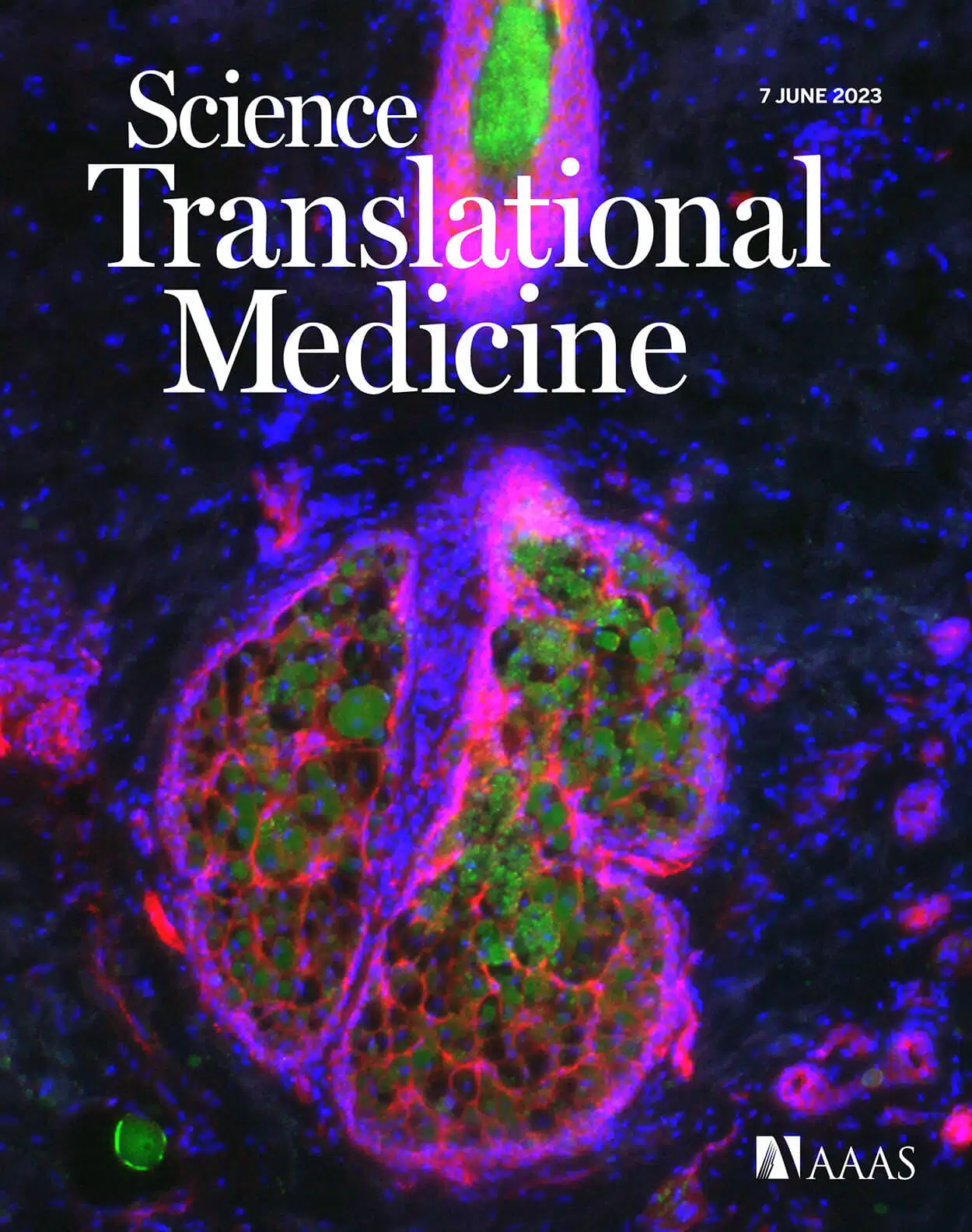Researchers at the Hebrew University and the Hadassah Medical Center have developed an ointment to treat the severe side effects of targeted cancer treatment and significantly improve the quality of life of patients.

The treatments known today for cancer have reached a high level of efficiency in prolonging human life and many patients are treated with the disease for long periods of time, which necessitates paying greater attention to the quality of life of the patients as well as their mental state, throughout the years of treatment. A new study by Prof. Ofra Bani from the School of Pharmacy at the Hebrew University of Jerusalem and Dr. Sharon Marims - a dermatology specialist and senior physician at the dermato-oncology clinic at the Hadassah Medical Center and the Hadassah Cancer Research Institute, which was published in Science Translational Medicine deals with a development that will improve the quality of life of patients, During the challenging period of the fight against the disease and bring a balm to the phenomenon of skin toxicity.
The most common treatment in oncology today, includes target-oriented treatment, which is supposed to block a receptor designated for the type of cancer and the specific patient. This inhibits the growth of cancer cells and the disease recedes. Since the same receptor that is more expressed in the tumor is also present in the healthy skin cells, a well-known and difficult side effect of the targeted cancer treatment is skin toxicity.
In the case of certain tumors (such as colon tumors, and head and neck tumors and others) the treatment protocol focuses on blocking a specific receptor for the EGFR pathway. The aforementioned pathway is critical for the function and growth of those cancer cells, but it is also known to be important for maintaining the health of the skin. This means that along with the effectiveness in the fight against cancer, about 90% of the patients through this targeted treatment will develop skin toxicity, which is manifested in severe rashes on the face. These rashes are not only a real nuisance, but they may also affect the patients' mental state and, in severe cases, their willingness to continue treatment.
The rashes characteristic of skin toxicity are varied, but one of the most prominent features is a severe rash on the patient's face, something that greatly affects the quality of his life, not only aesthetically but also mentally, because of the location of the rash that "takes him out of the closet" blue in the face of society as a whole.
Currently there is no effective treatment for these severe rashes. In a new study led by Prof. Ofra Bani from the School of Pharmacy at the Hebrew University and Dr. Sharon Marims from the Hadassah Medical Center and the Hadassah Cancer Research Institute, the researchers managed to find a way to help patients and prevent the rash phenomenon.
In their research, the researchers developed a new drug that will be given as an ointment to the skin in which the active substance can block the binding of the cancer drug to the EGFR receptor and thereby prevent the damage to the healthy skin cells without harming the treatment of the tumor site. Prof. Beni stated that "the result is that, on the one hand, it is possible to continue the cancer treatment and, on the other hand, to prevent the harmful effect of the cancer drug on the skin and the rashes it creates, and to allow patients to continue a better quality of life while they receive treatment against the cancer." Dr. Marims explained that "the skin toxicity, which manifests itself in a rash on the face, is unbearable for those affected by it, and it brings with it a unique mental difficulty, compared to the effects of toxicity in internal organs, which are not visible externally", according to Dr. Marims, "the treatment provided today , in order to prevent or reduce the toxicity and the rashes is not effective and the way to relieve the patients is usually by lowering the dose of the drugs that can be used to treat cancer or stopping the treatment for short periods, with the aim of helping to heal the skin and the disappearance of the rash. These actions, even if required, can jeopardize the effectiveness of the treatment against the tumor. "
Another problem the researchers had to deal with concerned the fact that the skin, the organ affected by toxicity, is one of the organs with the lowest permeability in the human body. This means that there is a significant challenge to transfer drugs from the upper layer of the skin to the inner layers of the skin. For this purpose, the researchers based themselves on a previous study in which a unique transport system was developed, based on nanoparticles, which concentrates on transporting the drug to the hair follicles located in the inner layers of the skin, where most of the skin damage occurs. Ointment treatment allows the continuation of the treatment of the tumor alongside neutralizing the effect of the treatment on the skin and preventing skin toxicity and the rash that follows it.
On the basis of this innovative development, the company Emris Pharma is currently being established, whose goal is to bring the drug to clinical development in the near future, to prevent the phenomenon of skin toxicity and to improve the quality of life of the patients.
For the academic article: https://www.science.org/doi/

One response
If the research is important to you that it succeeds
University nursing graduates should be leveraged for the management team of the ancient place in Tegart Seva ..which they do not understand is neither professional nor managerial..